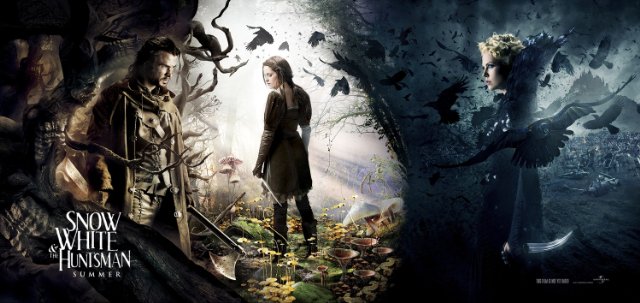 Are you tired of all the drama and want it to end? Most of us get to a point where enough is enough and we yearn for peace.
Are you tired of all the drama and want it to end? Most of us get to a point where enough is enough and we yearn for peace.
This is a long post today. If you are longing for the drama to end in the highs and lows of your life, then I hope you will find some helpful insights here.
Drama is so fascinating to me. We seem to be bombarded with it in the media and the blogging world, we see it around us at work and on the playing field, and we live it out in our own relationships. I was brought up to minimize drama … and later on found a whole new appreciation of drama when I married into an Italian American family….lol
Drama arises from conflict.
Conflict is a fact of everyday life, whether we like it or not. Its simply a condition in which people’s concerns appear to be incompatible with with an other’s. How we deal with it is an other story.
As human beings this happens … and what we do about it, is to create our own stories. We learn about this conflict drama early on in life in stories and fairy tales we are told.
In classic tales, we encounter three types of characters: the victim (often portrayed as a damsel in distress or an innocent youth); the villain (a witch, giant or dragon); and the hero (the white knight or prince). Because we experience our own conflicts as stories, we unconsciously adopt these roles. Most often we see ourselves as the victim – innocent and powerless. The central character in the drama. Sometimes we play the hero in order to right a wrong. And occasionally we may slip into the role of the villain, venting our anger or frustration on another person. Together, these roles form a “Drama Triangle”.
I think most of us can all relate to this … can you?
Of course, each person in the conflict has their own story. And this is where it starts to get complicated!
Our adversaries will see us as the villain and paint themselves as the victim, we in turn will defend ourselves and see ourselves as the hero. The drama will continue until a time when we can step back and observe what is going on. As long as we are in the drama, we will keep the conflict and going.
As the Victim
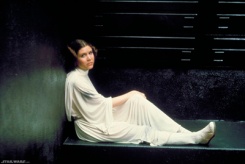 We experience conflict as an attack on our esteem or persona. We may see our values threatened or fear someone will take something from us and we feel victimized. When we feel victimized we need a villain to blame.
We experience conflict as an attack on our esteem or persona. We may see our values threatened or fear someone will take something from us and we feel victimized. When we feel victimized we need a villain to blame.
The victim role includes a sense of powerlessness. We may withdraw and wait for something to change or for someone to rescue us. Some of us will suffer in silence, while others with vent our frustration and blame.
The reward of victimhood is a significant amount of attention in the form of sympathy. We may also be lucky in attracting a hero to “right the wrong” for us.
Alternatively we can play the guilt card and hope that the other person starts to feel bad at inflicting pain on us and behaves differently. In this feeling of powerlessness, we also absolve ourselves of responsibility. We justify inaction by saying it isn’t our fault and the other person has to change. Powerlessness erodes our self esteem and leads to more resentment and frustration. By playing the victim we trade personal power for sympathy and ironically increase the stress and negativity we seek to avoid.
On a more positive note, the victim role reflects our goodness, sensitivity and compassion. The victim/princess rarely seeks revenge and facilitates reconciliation. These qualities are essential to escape the drama and adopt a cooperative approach.
As the Hero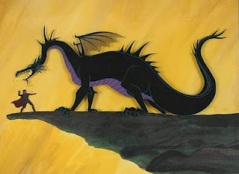
Although we initially experience conflict as a victim, we often shift to hero mode to protect ourselves, defend our interests, and even the score.
The role represents courage and action, taking a stand and risking discomfort or judgment.
There is a darker side to the hero role however. That is the fine line between righteousness and self-righteousness. What we may see as clever, others may see as manipulative. What we see as taking charge, others may experience as controlling.
We can justify our own aggressive behavior by saying “they had it coming.” Based on actions alone, the hero is simply a self righteous villain. Some of us may appoint ourselves as heroes in the conflict of others. Though our intentions may be noble, this approach reinforces the helplessness of the victim and further entrenches the other person in the villain role.
As the Villain
Wait a minute, none of us want to be the villain! Right? We have labeled the villain as “bad”….. However, most villains come from a fear filled place. They will do anything not to become a victim again! We see villains in other people, but it is much harder to recognize how we take on this role ourselves. Most villains want to see themselves as a victim or hero in the story.
Villains traditionally capture and control the victim for their own purposes. This role can also represent the shadow or dark side of us that is mean spirited and vindictive. This dark side also includes the part of us that is mistrustful, controlling and manipulative. The villain acts aggressively, attacking and hurting others to get what they want. When we experience someone controlling us, we quickly cast them as the villain in our conflict story.
The behaviors of the villain are similar to those of the hero, distinguished only by how we judge them.
Internationally – and from US history – the same acts of violence against an existing power are seen by other ideologies as the selfless acts of freedom fighters. It depends on whose side you are on. One person’s justice is the another’s revenge. The villain gets a bad rap, but some qualities include patience, creativity and ingenuity (though we would probably call that behavior manipulative or sneaky).
Our conflicts become populated by a constantly changing cast of victims, villains and heroes:
- The 3 characters in this story form a drama triangle.
- There cannot be a victim without a villain.
- Before we can become heroes we must have a wrong to right, and a foe to vanquish.
- A hero needs someone to rescue (and that someone might be ourselves.)
- If you see yourself as a victim or a hero, then you automatically create a villain and conflict.
- When you see someone as a villain, they in turn will feel victimized by you – and see you as the villain.
- Behaviors you see as self defense become attacks in their minds. And the walls of judgment and justification are buttressed on both sides.
Beyond the Drama
To eliminate villains from our conflict, we must be prepared to give up being a victim, and the sympathy and security this role appears to give us.
We also need to relinquish the mantel of being a hero, and the self righteousness that comes with that role.
We must also be prepared to see how we may have hurt others and have become unintentional villains!
The Drama Triangle produces a winner or loser approach, and we will battle ferociously to avoid defeat and claim the moral high ground (of the victim and hero). However, in the Drama Triangle there is no real winner. To end the conflict, we need to shift our perspective and our approach.
For the drama to end, we must recognize the role we have been playing, address the real issue and step out of the drama.
When we recognize the Drama Triangle we have choices:
1. To continue in our role and not take responsibly to do what we can to work towards resolution.
2. To shift our perspective to one of listening to understand what is really going on. Becoming the observer of the drama rather than a player.
3. To embrace that we are all human beings who want to be recognized, accepted and loved. What are the fundamental needs of each player? How do they each see the situation? How can we help them in getting their needs met?
4. Even if we have been cast the villain of this particular drama, then we can apply our patience and creativity to find strategies to solve the problem, rather than to blame and exact revenge.
5. If we are the victim, we need to let go of the sympathy from others and to no longer expect someone else to rescue us. Its time to turn our attention to what we can do for ourselves to get the help and resources we need.
Drama lives in our every day “ego” and media driven lives. Its a place of “me” “mine” and “I’. It’s a way of living that is about “me” versus “them”. “Them” versus “us”. When we come to an understanding that we are human beings who share fundamental needs and values, that we are connected, rather than separated … then we can let go of the drama and conflict.
Living in our own drama triangles prevent us from connecting with ourselves and living from our Middle Ground.
Take a moment to ask yourself if you are having difficulty finding your Middle Ground and being present – and consider if you are engaged in a drama triangle in your own life …..
Where there is drama there cannot be true peace.

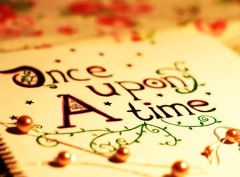
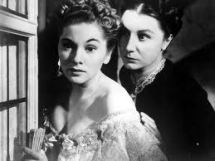
Beautiful post, Val. You’ve set it out so well. Thanks for a great share.
LikeLike
Thank you Nancy. Its more like a guide and resource than a post. I’m glad it resonated with you!
LikeLike
Love the last line, it sums it all up so well! Sometimes it is hard to let go, but where there is drama, there can’t be true peace 🙂
LikeLike
Thank you Kate. There’s a lot here today 😉 The last line is the best reminder for all of us!
LikeLike
Brilliantly stated. There is much wisdom in this post!
Russ
LikeLike
Thank you Russ. I did a lot of research into conflict and drama for a particular work situation. There is a lot that we can learn and apply. Val
LikeLike
Timely. I’ve written several times in my journal about this topic lately. The layers of unworthiness that created the victim inside me are slowly falling away. REALLY slowly. At least I recognize my feelings and allow them, without reaction now. But the hurt is still there. Thanks for reinforcing me today.
LikeLike
Thank you ISWH for your sharing here. One self aware step at a time will get you there. This is a mindfulness practice too ….
hugs,
Val
LikeLike
This is a really good and informative post Val 😀
It is very important to let the past be the past and let go of all drama to find the needed peace. Thanks for sharing.
LikeLike
Thank you for your kind and insightful comment Irene. Val x
LikeLike
Such a great post Val. Full of if wisdom and insight. Thank you.
LikeLike
Thank you Don for taking the time to read it. Val x
LikeLike
Your last line sums it up perfectly!
Great post, Val.
LikeLike
Thank you Michael for your kind words. Glad you appreciated it!
LikeLike
Val. This is a great post that holds much meaning. I do understand what you are getting at in how we can get trapped in the triangle. After the ending of a relationship people can become stuck in which of the three characters they identify with.
However, I was wondering your thoughts on someone who is trapped in a bad relationship and especially an abusive relationship. When in such a place it is very difficult to sometimes accept what it is and to find the middle ground to reach the # 5 of doing something about it. In fact, as you say, because victims are generally sensitive and compassionate, that is the very reason they cannot break away. They keep seeing the human side of the other. They keep forgiving. They keep acting as the ‘hero’ by trying to fix things that cannot be fixed. To break free from such a situation, they actually do have to see the reality of their ‘victim’ role. They need to identify with that role in order to save themselves.
LikeLike
That’s an excellent point, elizabeth. I ran a Domestic Violence program in New Jersey for a number of years. Our goal was to educate victims of abuse about the cycle of violence, about how unlikely it is that batterer will change without counseling, and the resources available to them so they could break away from the batterer’s hold on them.
If you know someone locked in that cycle of violence, giving them the number of the National Abuse Hotline might save their life.
LikeLike
Thank you Elizabeth for sharing here. When we see the role we are playing it opens up new perspectives. This new awareness is the start of breaking the cycle. I agree with what you say – they need to identify that role in order to save themselves … and break free.
Val x
LikeLike
Here’s the website:
http://www.thehotline.org/
And the number:
1-800-799-7233
LikeLike
Thanks so much Nancy for sharing this valuable info here!!
LikeLike
Perfect. Needed this today 🙂
LikeLike
So glad.
Be happy!
LikeLike
What a wonderful post, and so insightful! Thank you kindly for sharing this wisdom with us. Blessings, Gina
LikeLike
Thank you Gina. Its so lovely to have you take a moment to comment. ❤
LikeLike
Pingback: Thanks, Val! | Spirit Lights The Way
Powerful post, Val. The last line was “wow” good.
LikeLike
Thanks J! Glad you found it meaningful. Val x
LikeLike
Pingback: Sometimes It’s Hard To “Come Clean” | Spirit Lights The Way
Reblogged this on Find Your Middle Ground and commented:
This is a reblog with some valuable information that could help peeps caught in a drama triangle right now.
Val ❤
LikeLike
Thank you for this…so timely for me 🙂
LikeLike
So glad it resonated tonight 🙂
LikeLike
This is a great – and perennially great – post, Val. You’ve both explained the tension that holds together the “drama triangle”, how our roles in it change labels depending on our perspective and judgements, and even how to break the cycle. It’s really a public service, because so many of us have been pulled into one of these and might feel we can’t escape. Your suggestions point to practical ways to move past the painful model into a more loving interaction.
Thanks,
Vincent
LikeLike
So glad you found it helpful Vincent! When we can become an observer we see with clarity … 🙂
I like the idea of “public service ” announcer!
Val x
LikeLiked by 1 person
Lots of wisdom and insight into “Drama” thankyou Val. This breaks it down and allows us to recognise our roles and those around us when experiencing Drama. When we understand why people identify with a certain role, we have more chance of working towards a solution.
Karen
LikeLike
Thanks Karen! Its become a resource to keep handy when we find ourselves getting caught up in life’s dramas:)
Val x
LikeLike
This is an exceptional piece of writing Val, if I may say so – unambiguously clear, deeply insightful and instructive all at once.
I find that these ‘drama triangles’ are invariably draining of energy to witness, or to participate in when unadvisedly lending a sympathetic ear, so to speak. I suppose in either case, it’s then more of a ‘drama quadrangle’, even if the fourth angle is more an obligated mediator than perversely willing participant.
It’s the aggressive imposition of self-interest that seems to sap one’s energy, whether that aggression be passive or not – often the supposedly ‘passive’ victim, as you so rightly suggest, is subtly attacking the other in setting them up as the cause of their victimisation. Oh dear, the joys and woes of being a human animal!
Hariod. ❤
LikeLike
Brilliant insight Hariod! Thank you so much for your support and kindness 🙂
Being human is a powerful place for learning and growing that’s for sure!
Val x
LikeLike
H ❤
LikeLike
Interesting and insightful, Val! Thanks for sharing this! x
LikeLike
Thank you Julie! Its one to keep handy … just in vase we find ourselves being drawn in to others’ drama.
Val x
LikeLike
Wow Val ~ a truly amazing post so filled with tidbits that are relative to life. I search for and enjoy peace in my life now. I let go of the dramas and allow my life path to be peacefilled and loving. Sometimes one can simply step away from the drama and go about one’s own business, allowing drama to swirl elsewhere. At least that’s what I’m doing nowadays. ♥ I think it’s a choice, just like when you choose to engage in the drama and choose one of the roles you have so deftly described. Thanks for such a poignant piece today. xo
LikeLiked by 1 person
Thank you for your kind words Yvonne. Like you, I have stepped back from life where there is drama…. Yet there will be times in the highs and lows of life where I know I could find myself being drawn in to one of these roles. (Especially being the hero)
I did this research a few years back and it has stood the test of time for me and my clients 🙂
Val x
LikeLiked by 1 person
This is spot on Val! Having just emerged from loooong-drawn out drama with a so called ‘friend’ – I can so easily spot the roles played out and everything you say makes so much sense. Thank you for sharing your wonderful wisdom!
LikeLike
The one thing I would like to add though – is that some people are just so addicted to drama – that it;s as if their life will be empty without it and they then try their damndest best to pull you into it and if you refuse – you are then assigned the role of the villian!
LikeLike
Thank you for sharing your experience Anjali (and your kind words!). When we begin to transform ourselves it can be hard to accept others for where they are. We can be a role model for them by remaining centered and present. Sometimes we need to keep away from potential dramas. And at others times, we may have to let go of people that continue to drain our energy.
Val x
LikeLike
Absolutely Val and thank you once again! xx
LikeLike